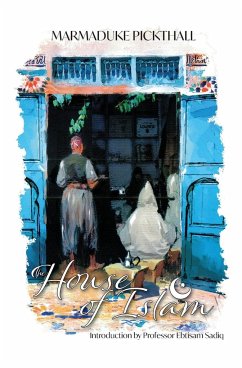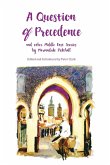The House of Islam explores the contrasting lifestyles of two Palestinian brothers. Milhem, an ambitious Ottoman official, borrows money from his brother Shems-ud-din, a merchant and holy man, to purchase a government post in Jerusalem - a bustling, sophisticated city. When Shems-ud-din's beloved daughter falls ill, he is forced to leave his tranquil dwelling to seek the aid of a Frankish doctor in Jerusalem. The ensuing adventures that arise from their divergent paths give an insight into the Muslim world of the nineteenth-century with the sensitivity that Marmaduke Pickthall is renowned for. Pickthall's second Middle Eastern novel, The House of Islam explores the tension between traditional local customs and new Western practices in a Muslim culture on the cusp of immense change.
Bitte wählen Sie Ihr Anliegen aus.
Rechnungen
Retourenschein anfordern
Bestellstatus
Storno








